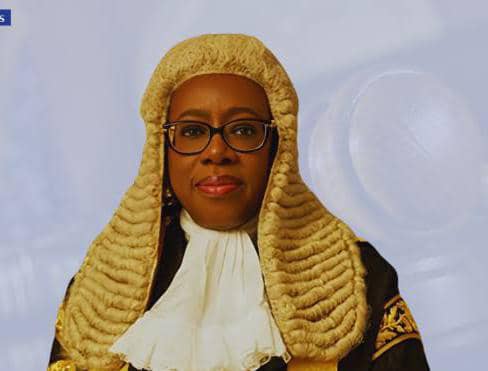The Chief Justice of Nigeria (CJN), Justice Kudirat Kekere-Ekun, has issued a stern warning regarding frivolous petitions against judicial officers, stating that anyone found filing such complaints with the National Judicial Council (NJC) will face consequences.
Speaking at the 2024 annual Justices’ Conference of the Court of Appeal in Abuja, Justice Kekere-Ekun expressed concern over the increasing number of baseless petitions lodged against judges.
She emphasized that the integrity of the judiciary must be protected, and frivolous complaints would no longer be tolerated.
To prevent conflicting judgments in the Court of Appeal, the CJN recommended that justices hold regular conferences to discuss cases before delivering judgments.
She noted that such discussions promote mutual respect, deepen understanding, and improve the quality of judicial decisions.
“The theme of this year’s conference, ‘Judicial Introspection,’ encourages us to reflect not only as individual judicial officers but also as a collective force within the judiciary. Introspection is essential for refining our judgment, improving performance, and maintaining public confidence in the judiciary,” she said.
Justice Kekere-Ekun further noted that while the judiciary comprises distinct officers, it is viewed as a unified entity by the public, and its credibility depends on the integrity of both individual judges and the institution as a whole.
She expressed confidence that through introspection, the judiciary could tackle ongoing challenges such as case backlogs, inadequate funding, and public perceptions of inefficiency.
Earlier, the President of the Court of Appeal, Justice Monica Dongban-Mensem, highlighted the crucial role of justices in the administration of justice, noting that their decisions deeply affect individuals and society.
She urged the justices to continually engage in self-reflection and evaluation to improve their responsibilities and the overall justice system.
Dongban-Mensem also discussed the impact of social media on the judiciary, noting that while it has improved communication, it has also brought challenges such as online harassment and the integrity of digital evidence.
She stressed the importance of the judiciary adapting to the digital age through regular intellectual development.
In his address, the Attorney General of the Federation and Minister of Justice, Lateef Fagbemi, SAN, reiterated his commitment to upholding judicial independence and ensuring the judiciary has the necessary resources to perform its duties without external influence.
He emphasized that a truly independent judiciary is crucial for maintaining democracy, the rule of law, and justice for all Nigerians.
Fagbemi also acknowledged the significant contributions of the Court of Appeal in shaping legal precedents and upholding justice, noting that the judiciary must remain vigilant against threats to its independence, including political interference and public pressure, especially through social media.
The conference, themed “Judicial Introspection,” serves as a platform for assessing the Court of Appeal’s progress and setting a course for its continued success in delivering justice.

















